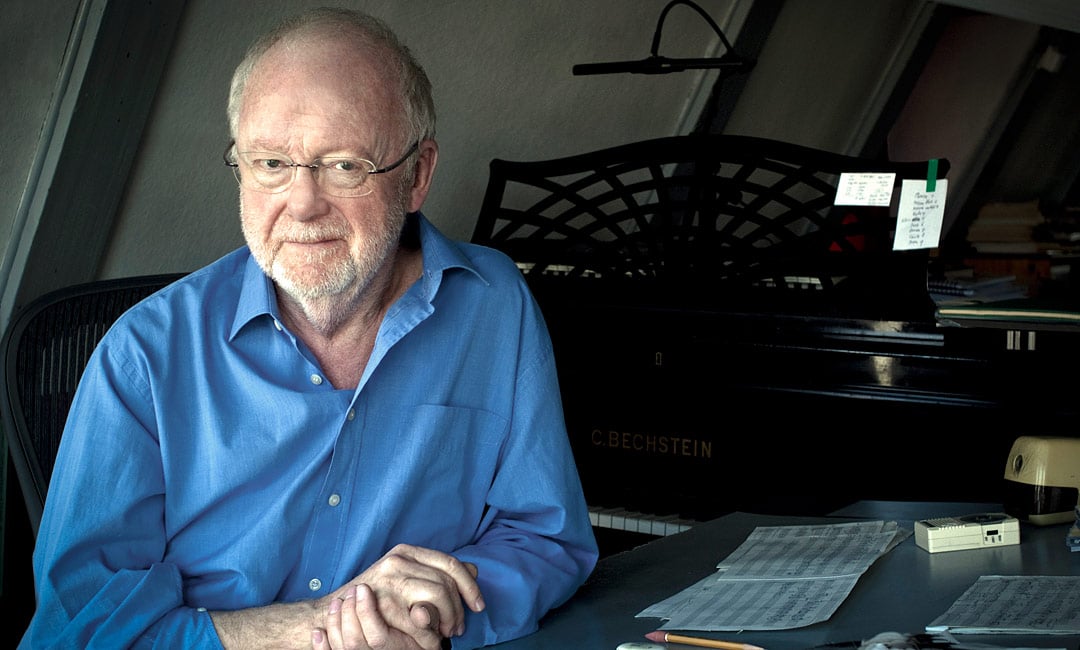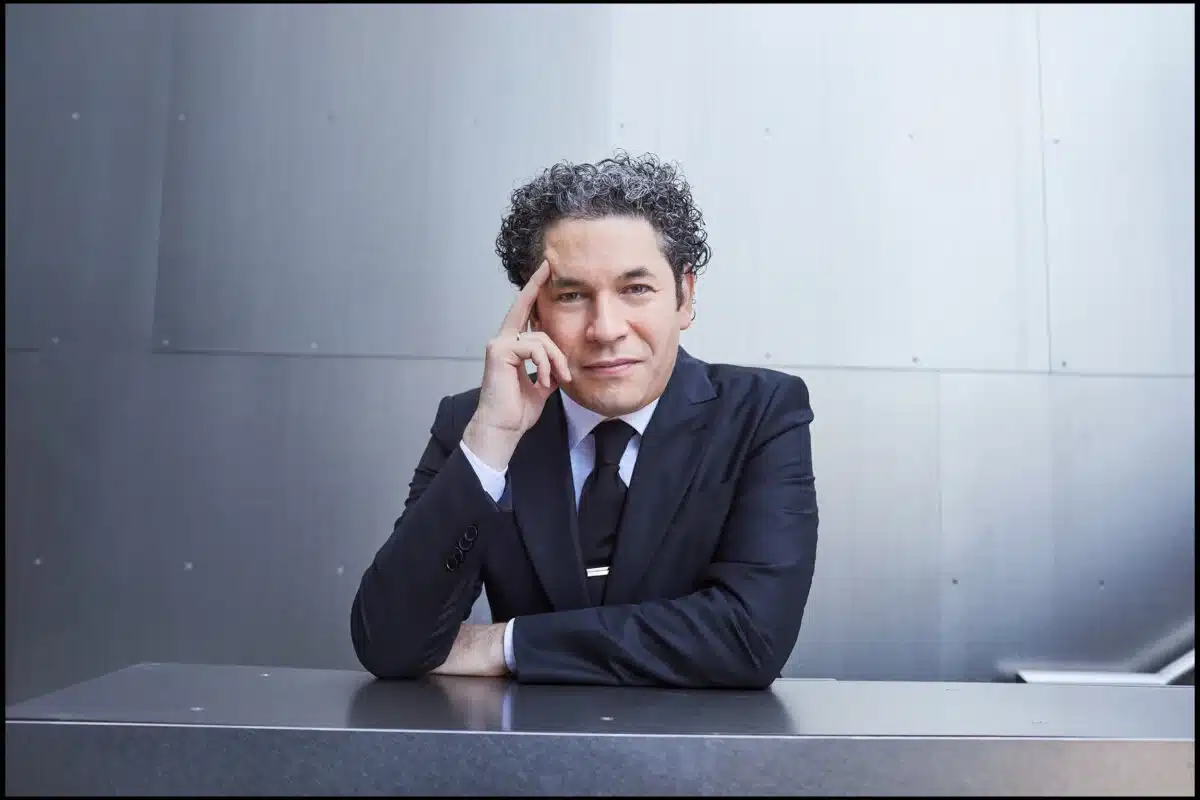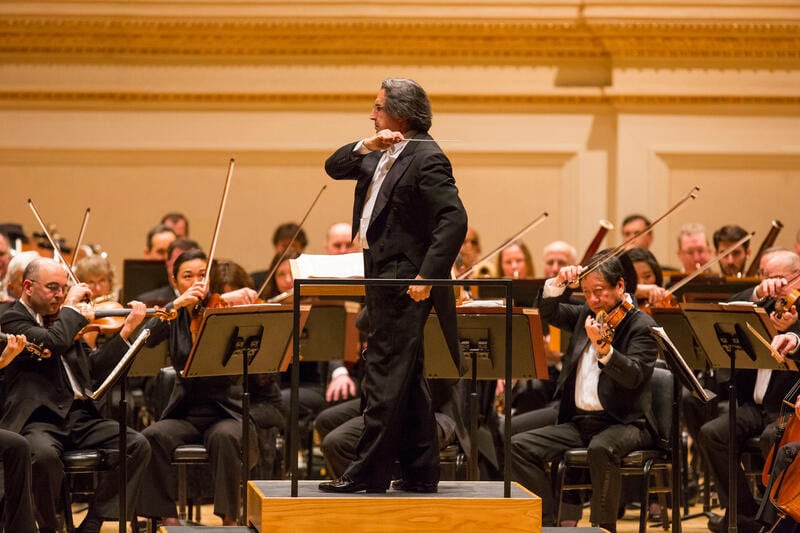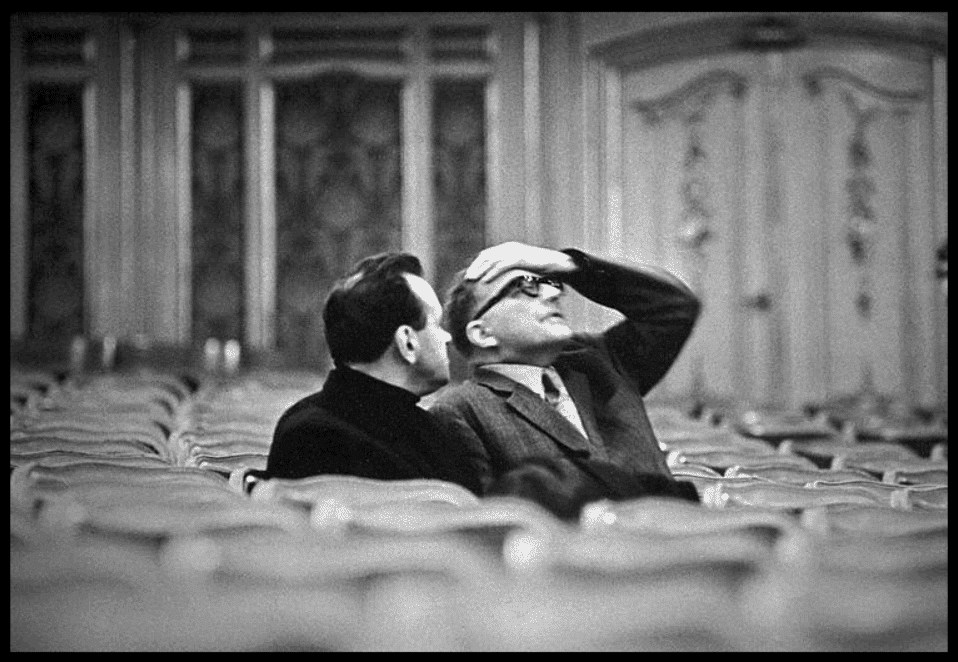Just in: Dutchman wins $200,000 from the New York Philharmonic
mainThe NY Phil has awarded the $200,000 Marie-Josée Kravis Prize for New Music to the distinguished Dutch minimalist composer, Louis Andriessen.
In addition to the prize, Andriessen wins a commission for a new orchestral work to be conducted in his opening season by the incoming New York Philharmonic music director Jaap van Zweden.
Who is also Dutch.
And who has pledged to promote Dutch music in New York.

His publisher’s press release:
The New York Philharmonic will commission a new orchestral work by Andriessen to be premiered during the 2018–2019 season, led by Jaap van Zweden in his first season as Music Director.
The Marie-Josée Kravis Prize for New Music at the New York Philharmonic, which recognizes a composer for extraordinary artistic endeavor in the field of new music, has been awarded to Dutch composer Louis Andriessen. Andriessen was chosen to receive the Kravis Prize for his lasting contributions to new music by a Selection Committee of leading artists and administrators who have close ties to the New York Philharmonic and a demonstrated interest in fostering new music. One of the world’s largest new-music prizes, the Kravis Prize for New Music is awarded every two seasons, and includes $200,000 and a commission to write a work for the New York Philharmonic.
The New York Philharmonic will give the world premiere of a new orchestral work by Andriessen during the 2018–2019 season, led by Jaap van Zweden, who will then be in his first season as Music Director of the New York Philharmonic. Of note, the Philharmonic also performed the New York premiere of Louis Andriessen’s De Staat in May 1986, led by Gunther Schuller, as part of the Orchestra’s new-music seriesHorizons.
Andriessen remarked, “It is an immense honor to receive The Marie-Josée Kravis Prize for New Music, and I send my deep and solemn feelings of gratitude. Being preceded by such masters as Per Nørgård and Henri Dutilleux is in itself already a great inspiration. I admire them both and have known and adored Dutilleux since I was 18 years old. My father, the composer Hendrik Andriessen, used to say: ‘We are not important; the music is important, and we have the duty to write as well as we can.’ It is in this spirit that I will write for the New York Philharmonic.”





The New Yorkers are in for a real treat.
Better luck next year!
…. I am inclined to take a long-term view.
Heaven forbid that an American orchestra make such a priority of American composers, and celebrate them with such generous patronage. While Andriessen is certainly an estimable writer, it is criminal (or it should be) to continually assign our native composers to secondary importance, particularly when awards of this magnitude are available. Those of us in this industry personally know many gifted American composers who could satisfy such a prestigious commission, and do so for less than 200k. One suppresses anger when meditating upon the number of American commissions that might have been had for a like sum. While this latest example of the shoddy treatment of American composers is no precedent, it should inspire howls of objection from audience, and more importantly the orchestra itself.
Maybe the expected piece by the genius will make these things clear. His celebratory work for the jubilee of the Royal Concertgebouw Orchestra was a pretentious flop. Fact is, that LA has fulminated all his life against symphony orchestras, their repertoire (!), their performance culture, their conductors, and the ‘bourgeois taste’ of their audiences who don’t share his pleasure in debunking every pre-war music, and don’t like his quasi-leftwing juvenile agitprop music. Exhibit A: this video. But when such tasty commissions come by, such rhetoric is set aside for the moment, to be picked-up afterwards again when the work in question has also turned-out to be a flop, confirming the truth of his condemnations.
Suich composers should calmly and quietly stay in their own, tested environment of the ‘new music scene’ of anti-bourgeois ensembles.
This is merely a reflection of the world view of the anti-bourgeois, regressive left who now accuse the Trump voting constituency of being white supremacists and any other vile and petty moniker they can muster to hurl at their own people. Music is no different from the rest of the society. It seems reasonable to believe that the same people who despise their own culture also disrespect its cultural artifacts. Ergo, they’ll produce fodder which reflects that disdain.
And, I’m afraid, that’s the sorry state of the nation/s.
For the record, it is a fact that many Trump voters and supporters consistently and loudly proclaim their support and/or identification with white supremacists, as does Trump himself. BTW excellent use of the word “ergo” and Trump in the same post, despite the extra consonant.
Long Live Louis!
Maybe LA should be considered an American composer, which may soften the pain.
“Prize winners are selected by a committee comprising leading artists and administrators who have close ties to the Philharmonic, and a demonstrated interest in fostering new music. The committee currently includes Philharmonic Music Director Alan Gilbert; Jaap van Zweden, who becomes Music Director in the 2018–19 season after serving as Music Director Designate in the 2017–18 season; Esa-Pekka Salonen, The Marie-Josée Kravis Composer-in-Residence at the New York Philharmonic, 2015–18; Nicholas Kenyon, managing director, Barbican Centre, London; Ara Guzelimian, provost and dean of The Juilliard School; and Daniel Druckman, New York Philharmonic Associate Principal Percussion.”
A camel is an animal designed by a committee.
What’s wrong with the camel? A camel is a highly efficient machine for its function.
Yes, that is true, but the same goes for LA”s music: it fully satisfies the desperate inner need of a certain type of listeners to feel the thrill of juvenile protests against the world again, now that they have become middle-aged and old, and have learned to see the fragility of the human world, it was much more fun at that earlier time. But both phenomenae are definitely inferior to the best in their respective fields in an aesthetic sense.